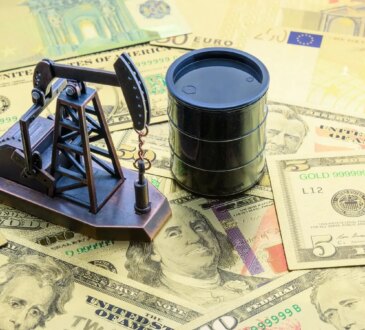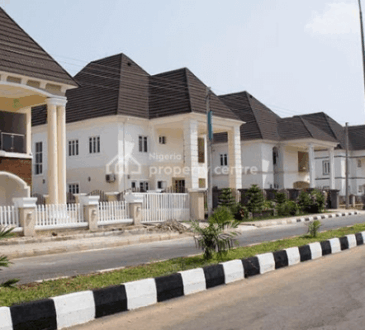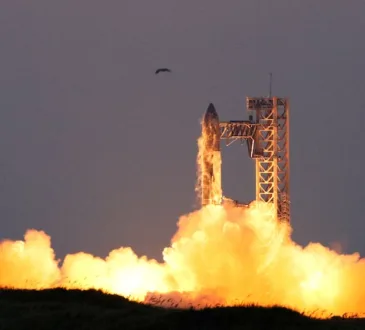This article is an on-site version of our FirstFT newsletter. Subscribers can sign up to our Asia, Europe/Africa or Americas edition to get the newsletter delivered every weekday morning. Explore all of our newsletters here
Good morning and welcome to FirstFT Asia. On today’s agenda:
-
Nvidia announces major new investment in Taiwan
-
The Trump Organization considers building a Vietnam tower
-
Businesses rethink their US travel
Nvidia chief executive Jensen Huang unveiled major new chip investments in Taiwan yesterday, as he stressed the island’s importance as a global technology hub during a speech at Taipei’s Computex tech show.
Nvidia’s Taiwan plans: Huang announced the construction of a new base in the Taiwanese capital and an AI supercomputer that would use thousands of the company’s chips. The Nvidia chief paid tribute to Taiwan, “the largest electronics manufacturing region in the world”, saying that it was the “centre of the computer ecosystem”. Foxconn subsidiary Big Innovation Company will work with Nvidia and the Taiwanese government to build the supercomputer — an investment that is likely to run into hundreds of millions of dollars.
Geopolitical challenges: The announcement comes as President Donald Trump’s administration pressures technology companies to increase manufacturing on US soil, and as Huang tries to navigate new tariffs and export controls that threaten Nvidia’s massive sales of AI chips — particularly in China. The plan also reflects a broader spending trend by Nvidia, which has pledged to invest up to $500bn over the next four years on AI infrastructure in the US with partners that include Taiwan’s TSMC, Foxconn and Wistron.
Here’s what else we’re keeping tabs on today:
-
Economic data: Hong Kong publishes April jobs figures and Malaysia reports monthly trade data.
-
Monetary policy: The People’s Bank of China announces its loan prime rate, while Australia’s central bank makes its interest rate decision.
Join energy CEOs, policymakers and investors for the inaugural Energy Transition Summit: Asia on 25-26 June in Jakarta & online. As a newsletter subscriber, register for a free digital pass here or enjoy 20 per cent off your in-person pass here.
Five more top stories
1. Donald Trump said yesterday after a call with Vladimir Putin that Russia and Ukraine would begin negotiations “immediately” on preparations for peace talks, but added that he was leaving Moscow and Kyiv to find a deal without the US as a broker. In separate comments. Vladimir Putin sounded far more tentative about any process and did not spell out a substantive change in the Kremlin’s stance.
-
Opinion: The question of who Trump blames — if and when peace talks fail — is crucial, writes Gideon Rachman.
2. Indian police have arrested one of the country’s most prominent Muslim public intellectuals over posts on social media related to the recent conflict with Pakistan. Government critics condemned the arrest of Ali Khan Mahmudabad, who leads the political science department at Ashoka University, alleging violations of freedom of speech.
3. Benjamin Netanyahu said Israel planned to take over all of Gaza as the country escalated its offensive in the war-torn enclave. The Israeli military yesterday told all residents of the southern city of Khan Younis to leave, demanding they move west to the so-called Al-Mawasi “humanitarian zone” ahead of what it called an “unprecedented attack” on the city.
4. Eric Trump, son of the US president, is expected in Vietnam this week for discussions on a proposed new Trump Tower in the southern financial centre of Ho Chi Minh City. Some analysts have said the Trump Organization’s growing interest in Vietnam could be positive for the country as it tries to strike a deal with Washington to avoid punitive tariffs.
5. London and Brussels have agreed a post-Brexit reset of relations that Prime Minister Sir Keir Starmer claimed would be worth £9bn to the UK, but he faced immediate claims he had “surrendered” by agreeing to keep British fishing grounds open to EU boats for 12 more years. The UK concession on fishing opened the way for a wide-ranging deal including a security and defence pact.
News in-depth

Executives, academics and government officials are approaching trips to the US with a level of caution more often associated with higher-risk jurisdictions such as China and some Middle Eastern countries. More aggressive border controls, which can include searching and even copying data from travellers’ devices and, at times, denying entry, are prompting organisations to reassess even routine work travel.
We’re also reading . . .
-
‘Bad’ billionaires: Sweden is generating the kind of wealth that raises the risk of an anti-capitalist revolt, writes Ruchir Sharma.
-
Swatch: CEO Nick Hayek has overseen a decade of decline at the Omega and Longines owner. Can he see off the threat to his grip on the watchmaker?
-
AI weather: Rapidly advancing technology is helping meteorologists make more accurate and detailed forecasts even further into the future.
Chart of the day
Maruti Suzuki, India’s largest carmaker, aims to reclaim dominance over the world’s third-biggest car market by targeting “the next 1bn Indians”, in an ambitious bet on the buying power of the country’s aspiring middle class.

Take a break from the news
Today’s recommended read poses a very important question: do you let your dog sleep on your bed? For Hannah Shuckburgh, the answer is yes, and she explores why dogs make such wonderful bedfellows.





